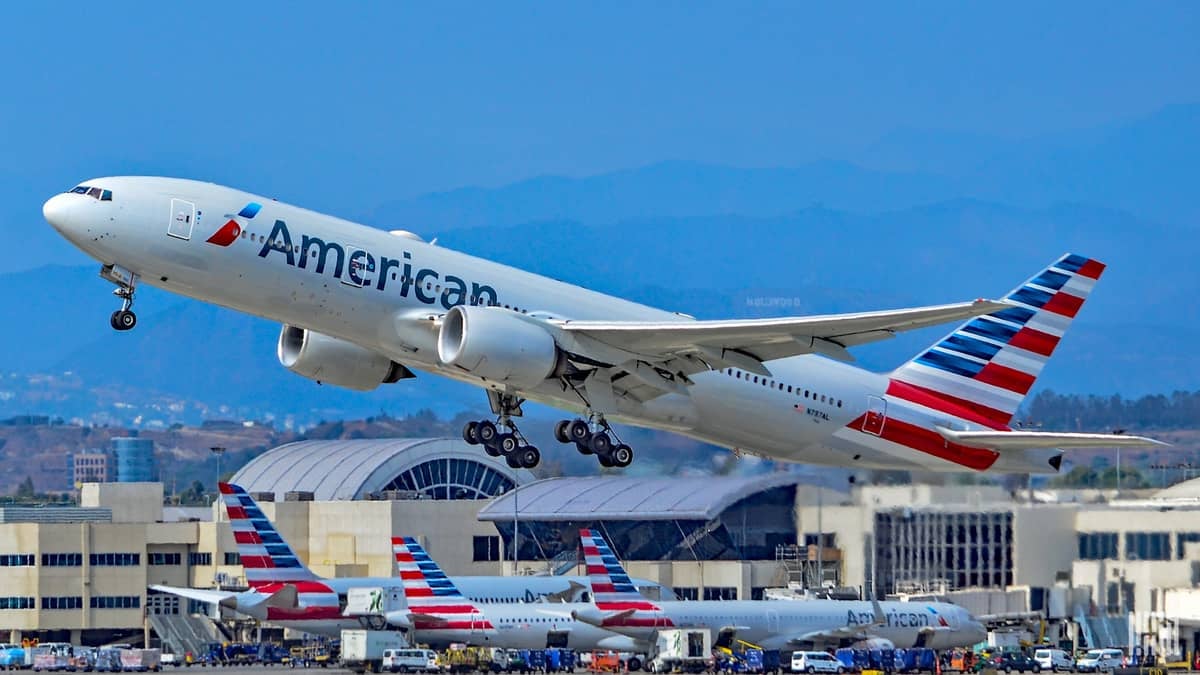American Airlines (NASDAQ: AAL) in September will offer more than 1,000 cargo-only flights using passenger aircraft, double the number of dedicated cargo flights flown during August, in response to a transport supply shortage as the traditional peak shipping season gets underway.
Cargo-only operations will serve 32 cities and be supplemented by 1,200 passenger flights offering cargo space, the company said Monday. It does not currently plan to open up more floor space for cargo by removing seats.
American is trying to further enhance revenues from cargo operations that have proven to be a lifeblood for many passenger carriers during the COVID era. Market dynamics are creating an incentive to deploy more “ghost” freighters on which people have been replaced by products carried on the lower hold and sometimes in the passenger cabin too.
Airfreght rates are significantly higher this year than last and are rapidly rising after cooling down midsummer, especially on the major Asian trade routes to North America and Europe.
About 80% of global fleets remain grounded due to the lack of passenger demand, leaving the market about a third short of normal cargo capacity. At the same time, shippers are increasingly interested in moving by air medical supplies and protective gear for the COVID response, e-commerce shipments and new technology releases such as cellphones and video-game consoles.
High transportation prices are important to make passenger freighter flights worthwhile because they have higher unit costs to operate. Passenger planes can’t carry as much as a pure freighter and take more time and manpower to load and unload, especially if the cabin is used for extra storage. Airlines have to figure out which routes are financially viable, create new COVID safety measures for crews and adjust logistics procedures.
American, which operated a combined 1,224 temporary freighters between late March and mid-July, is essentially doubling down on the all-cargo business. The mini-freighter concept has come a long way since it launched in March with 20 charter flights to two destinations. The carrier now offers a regular schedule of cargo flights as well as for-hire aircraft for shippers with unique requirements.
American’s use of all-cargo flights still resulted in cargo revenue falling 41% in the second quarter compared to 2019 and fell short of what other airlines achieved. United Airlines, for example, operated more than 4,000 cargo-only flights between late March and late July and achieved a 36% increase in cargo revenue. Air Canada increased cargo revenue 52% year-over-year, with cargo contributing a majority of the company’s total revenue for the first time ever.
The Dallas-based carrier has moved more than 45 million pounds of cargo around the world with auxiliary freighters. Establishing a freighter operation took a great deal of coordination among the cargo, network planning and operations departments because American has not flown freighters in more than 35 years.
“We essentially started our own little airline,” Tom Howard, a manager who led the development of the operation, said in a news release. “We had to build all of this out and coordinate how it flows with our scheduled passenger service.”
Click here for more FreightWaves/American Shipper stories by Eric Kulisch. / Contact: [email protected]
RECOMMENDED READING:
Air Cargo Market: Brace for big rate hikes
Role Reversal: Passenger airlines make more from cargo sales in Q2











